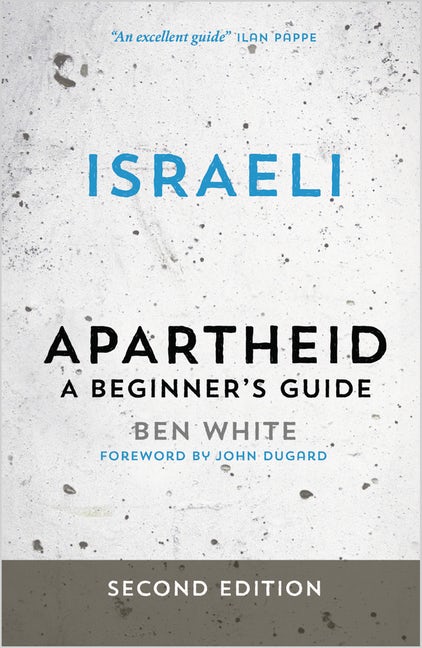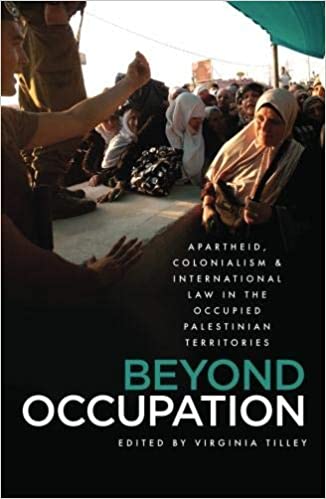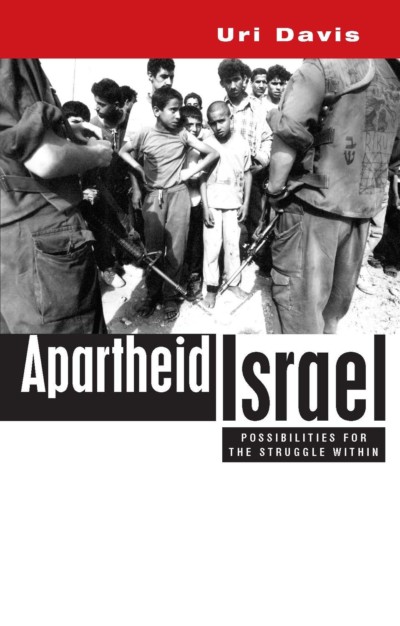Tag
Limiting Political Rights & Silencing Opposers
02
May
"A legal regime of segregation is operating in the Occupied Palestinian Territory, enabling the establishment and the consolidation of settlements, whereby Israeli laws applied personally to Israelis in the West Bank give them preferential legal status over Palestinians. This violates Palestinians’ rights to non-discrimination, equality before the law and equal protection of the law (see...Read More
An essential primer for those getting to grips with the Palestine/Israel conflict for the first time. Ben White skilfully distills the work of academics and experts into a highly accessible introduction. The book is rooted in the author's extensive personal experience in Palestine and includes testimonies by Palestinians describing how Israeli apartheid affects their daily...Read More
13
Jan
"The combined effect of the measures designed to ensure security for Israeli citizens, to facilitate and expand settlements, and, it would appear, to annex land, is hafrada, discrimination and systematic oppression of, and domination over, the Palestinian people." The Special Rapporteur recommended that the General Assembly "request the International Court of Justice to issue an...Read More
01
Jan
"[A]s the occupying power in the West Bank, Israel must explicitly acknowledge the applicability of the right to demonstrate in the occupied territories. Subsequently, Israel should establish clear rules that will enable the realization of freedom of expression and the right to protest in the West Bank, whether through weekly demonstrations or other protest events. The...Read More
24
May
The Absentee Property Law (APL) was enacted in the wake of the 1948 War to transfer the property of Palestinian refugees to the Israeli authorities. The provisions of the APL defined "absentee" and "absentee property" broadly. The APL also granted the Custodian of Absentee Property absolute authority, including the ability to release the property, while...Read More
04
Sep
Beyond Occupation analyses three critical terms that regularly arise in contemporary arguments about Israel's practices towards Palestinians in the occupied territories – occupation, colonialism and apartheid – and explores the degree to which their definitions in international law truly apply to Israel's policies. Colonialism and apartheid are serious breaches of human rights law while apartheid...Read More
29
Nov
"This short paper provides a list of 20 main new laws and currently-tabled bills that discriminate against the Palestinian minority in Israel and threaten their rights as citizens of the state, and in some cases harm the rights of Palestinian residents of the OPT. While this paper does not cover the entire body of discriminatory and/or...Read More
14
Jun
"Deeply concerned that the severe restrictions on the freedom of movement in the Occupied Palestinian Territories, targeting a particular national or ethnic group, especially through the wall, checkpoints, restricted roads and permit system, have created hardship and have had a highly detrimental impact on the enjoyment of human rights by Palestinians, in particular their rights...Read More
29
Jan
"Israel is clearly in military occupation of the OPT. At the same time elements of the occupation constitute forms of colonialism and of apartheid, which are contrary to international law. What are the legal consequences of a regime of prolonged occupation with features of colonialism and apartheid for the occupied people, the occupying Power and...Read More
Uri Davis analyses how it was possible for Israel and its apartheid legislation notwithstanding, to still maintain its reputation in the West as the only democracy in the Middle East, and effectively to veil the apartheid cruelty it has perpetrated against the Palestinian people.Read More


